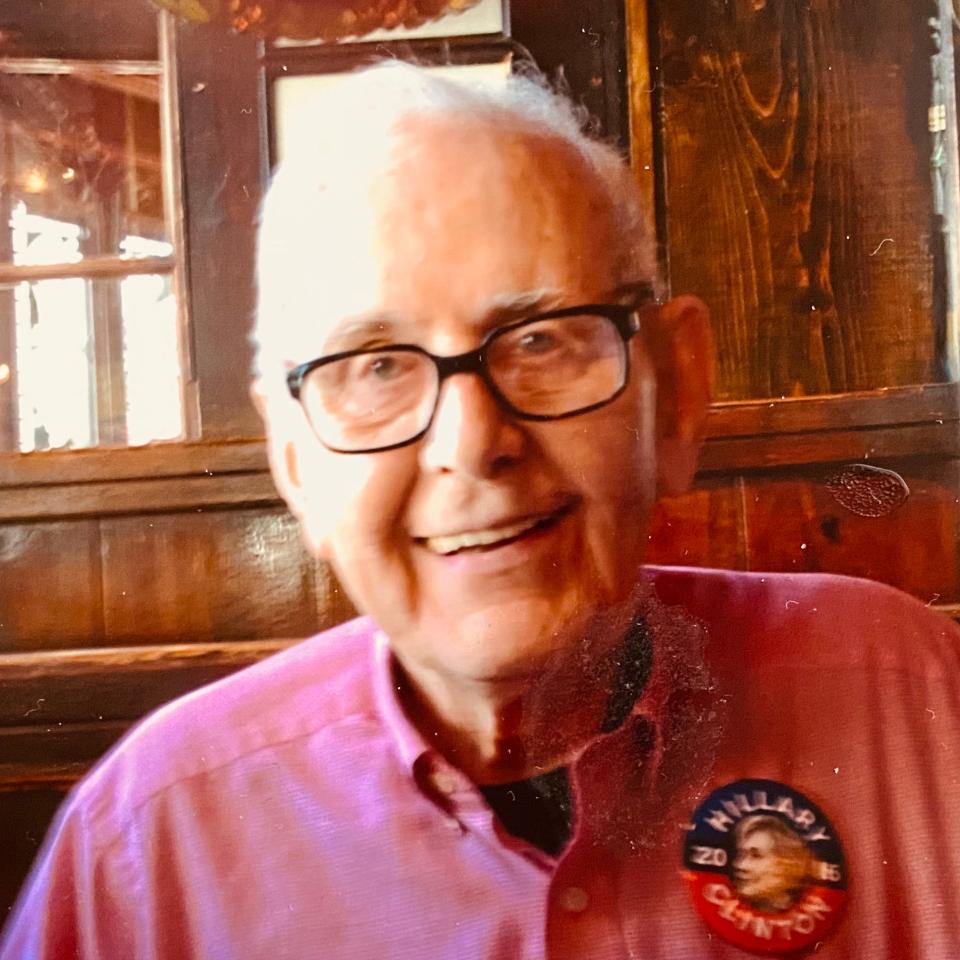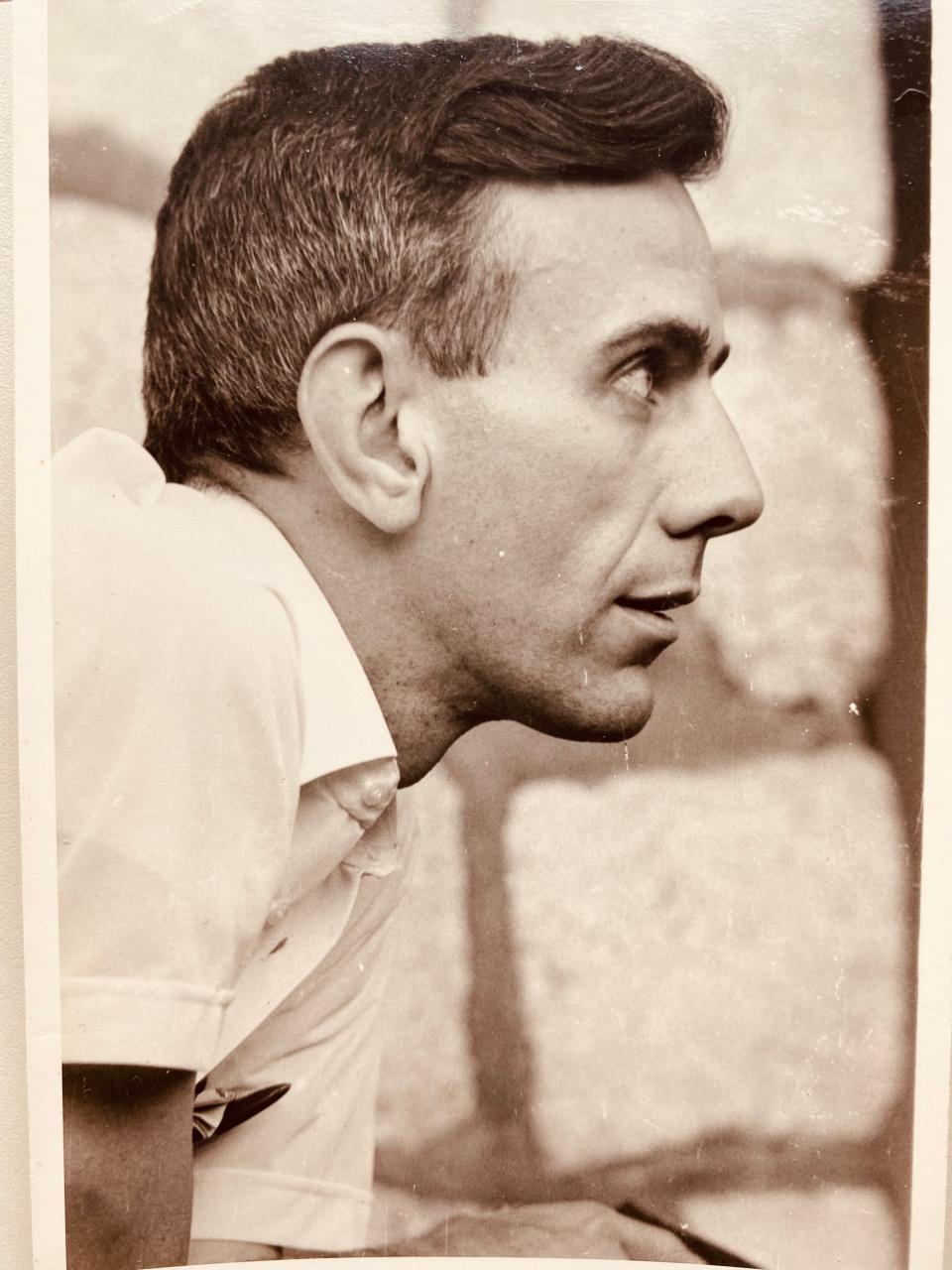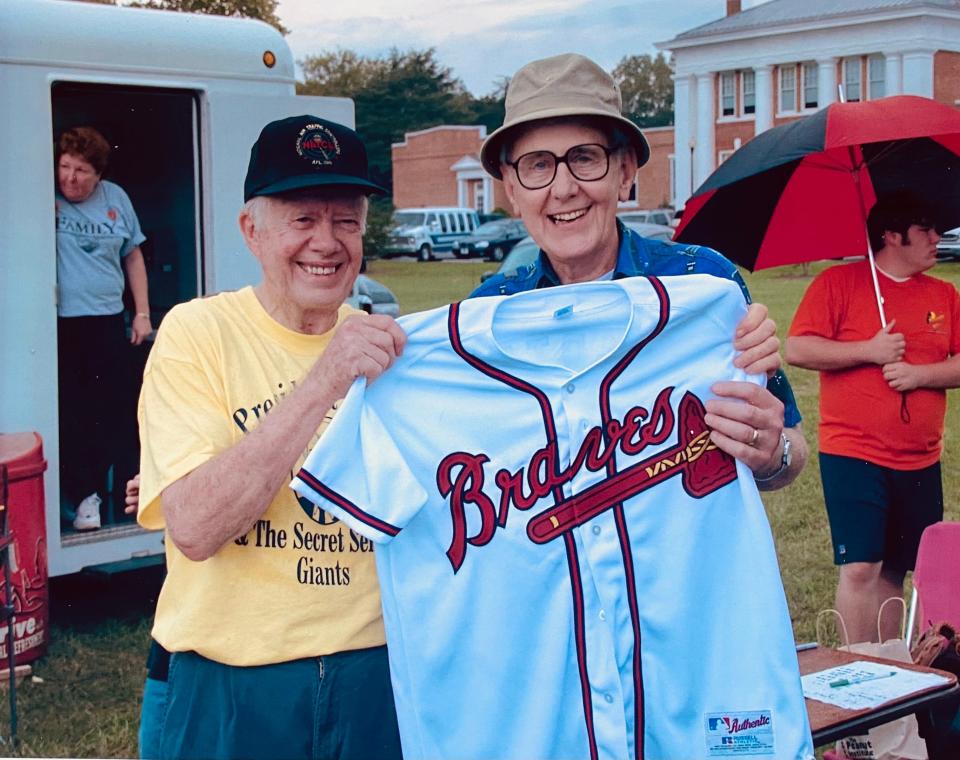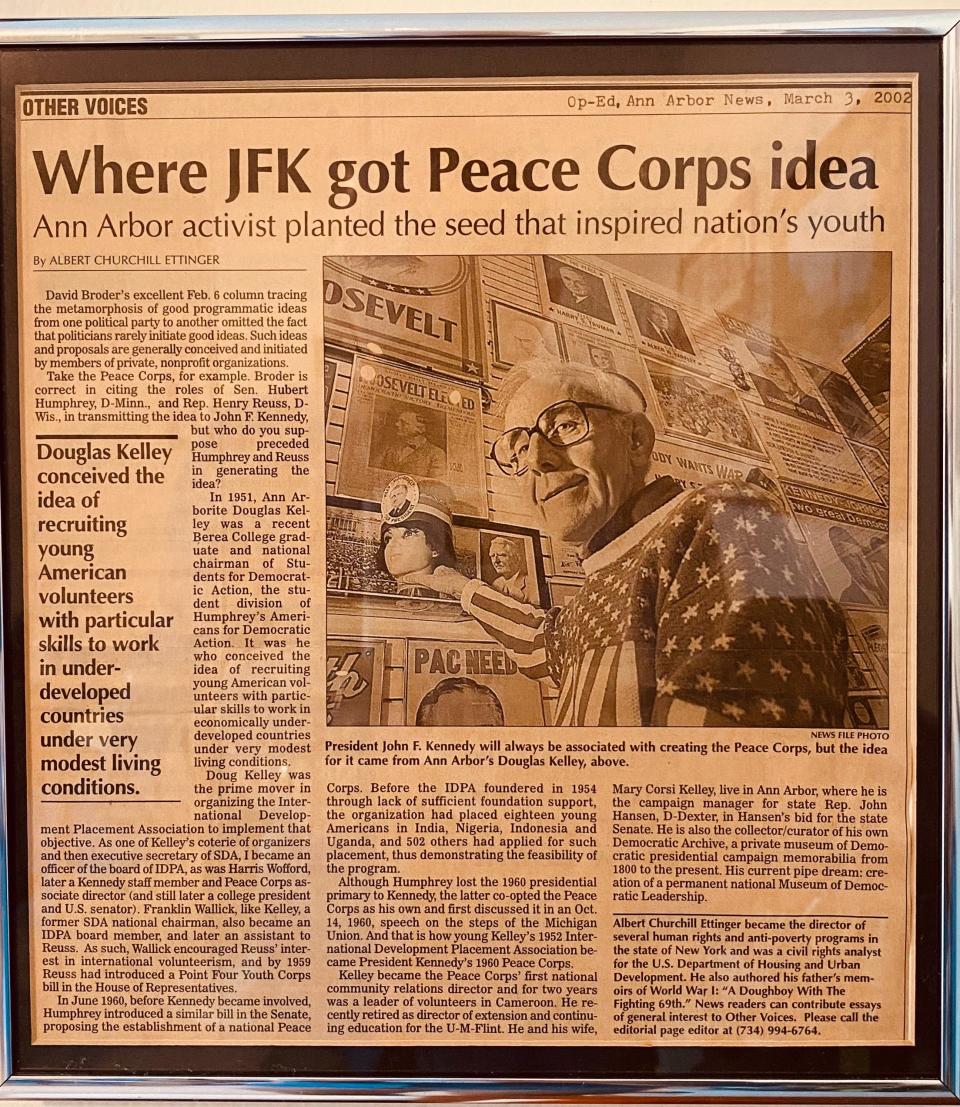Douglas Kelley, a Lansing native who inspired the Peace Corps, dies at age 92
Douglas Kelley's final batch of business cards listed Glacier Hills Senior Living Community in Ann Arbor as his home and "lifelong public affairs activist" as his profession.

Kelley, a Lansing native and Michigan State University alumnus, was forever dedicated to the role.
He was in his 20s when he conceived of and piloted the International Development Placement Association, a concept that would later become the Peace Corps.
That was just the start to "so many" legacies he left behind, said Cynthia Kelley, his first wife.
They included becoming the director of a community college campus in northern New York and being an active member and advocate for the Democratic Party.
Kelley "had a restless imagination in what was possible and he would enroll all kinds of people to pull it off," said Peter Kelley, his son.
He died on Jan. 12 at age 92.
Mobilizing people to help one another was in Kelley's nature, said his family and friends.
He contributed to "whatever he touched," Cynthia Kelley, 91, said.
Setting the stage for the Peace Corps
In the past six decades over 240,000 Americans have served in the Peace Corps, volunteering in 142 countries, according to the organization's website.
But in the 1950s, while Kelley was still a senior in college, he was one of a handful of young scholars who believed there was a need to place people in "modestly paid jobs with indigenous organizations and governments in Africa, Asia and Latin America," according to Kelley's own account.

They would be "idealists with zeal for humanitarian service but without the ethnocentric holier-than-thou attitude which for decades had characterized all too many Americans and Europeans in their contacts with the darker-skinned two-thirds of humanity," Kelley wrote in a memoir.
Cynthia Kelley was a student at Northwestern University when she met him at a meeting for the International Development Placement Association.
"He had a very strong sense of how government should and could help in the individual life of each person and I was very impressed with him," she said.
They married and took a "hitchhiking honeymoon" to Sevagram, India, near Mahatma Gandhi's final residence.
Kelley, the son of a highway engineer and teacher, worked on the Peace Corps staff after it was founded in 1961. He enlisted a few years later to volunteer with the organization, traveling with Cynthia and their two sons to Cameroon, Africa.
He founded the Bamenda Handwork Cooperative there, creating a market for local crafters that doubled the income for many of them. Kelley traveled the area collecting the crafts and enrolling 1,300 members.
The cooperative, now called the Bamenda Handicraft Cooperative Society, still exists and its crafts are exported to the U.S.
Kelley would go on to serve as executive director of the Encampment for Citizenship, a summer training camp in organizing for young people that he participated in himself years earlier.
He directed the North Country Community College campus in Malone, New York, before moving to Ann Arbor.
Cynthia Kelley, married to him for 24 years, said Kelley brought big ideas with him into each job.
"I used to say that in all the different jobs he had while I knew him, he could walk into a room with an idea and by the time he left he would have everybody in the room wanting that same idea," she said. "He had an enthusiasm that was very catching."
READ MORE:
A friendship between two Lansing cops endures 50 years after rescue
Lansing-area siblings who reunited last year fliind their remaining sister
Army sergeant from Onondaga found not guilty of charges stemming from gunfight
A legacy of public service
As the director of Extension at the University of Michigan's campus in Flint, Kelley started its first programs to help unemployed auto workers retrain, according to his obituary.

He and his second wife, Mary Corsi, organized the first Elderhostel for grandparents and grandchildren.
His dad loved people and believed in their ability to help one another, Peter Kelley said.
"Unlike most of us who are content just to volunteer or to take part in activities that other people have organized, he was the consummate organizer," he said.
Kelley was also an active member of the Democratic Party well into his later years, campaigning when he was 79 for Barack Obama in five states and amassing an impressive collection of political memorabilia in a private museum he called the Democratic Archive.
Kelley knew he needed to be involved in politics to advance community organizing projects he believed in, Peter Kelley said.
"He ran the Democratic table at the farmers market in downtown Ann Arbor every Saturday," he said. "Every Saturday the Democrats had a table and either my dad was there at the table or he had signed somebody up to do it."

"Doug dedicated his life to fighting to fix our nation’s broken health care system and to expand and improve voting rights for every American," Debbie Dingell, a Democrat and U.S. representative for Michigan's 12th congressional district, wrote in a tweet the day of Kelley's death. "My heart is with his family and our community as we mourn this significant loss.”
Public service is Kelley's legacy, said Dave Friedrichs, a longtime friend.
"He was sociable, empathic and he was engaged in all issues of consequence to people and the well-being of all those around them," he said. "He would say, 'How can we be of help?' and he knew how to get things done."
A date has not been set for Kelley's memorial service, which will likely be held in April, Friedrichs said.
Contact Rachel Greco at rgreco@lsj.com. Follow her on Twitter @GrecoatLSJ .
This article originally appeared on Lansing State Journal: Douglas Kelley, a Lansing native who inspired the Peace Corps, dies at age 92

